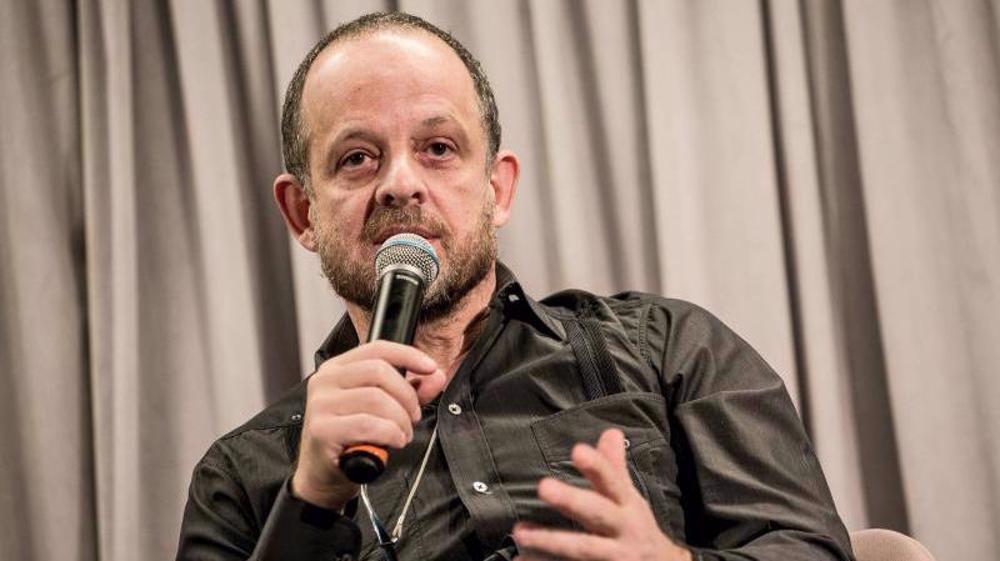Brazil’s Temer demands suspension of corruption probe against him
Brazilian President Michel Temer is trying to have a corruption investigation against him suspended.
Temer said on Saturday that he had filed a petition with the Supreme Federal Tribunal, the country’s highest court, to suspend the probe.
He challenged a recorded conversation allegedly incriminating him in a corruption scandal, claiming that the incriminating audio recording had been doctored.
“That clandestine recording was manipulated and doctored with [ill] intentions,” Temer said at a news conference in the capital, Brasilia.
The 39-minute audio recording appears to prove Temer endorsed the payment of bribes to ex-house speaker Eduardo Cunha in exchange for his silence in the probe against Temer.
Cunha is himself serving a 15-year prison sentence for corruption and money laundering. He spearheaded the impeachment push against President Dilma Rousseff last year, which eventually ousted her, and paved the way for Temer, who was her vice president, to assume power. Temer, too, had turned against Rousseff, who was his boss at the time.
Experts say it is unlikely for the court to drop the current investigation against Temer, as it authorized the opening of the investigation in the first place and ordered it to be made public.
Temer also questioned the motives of the person who made the recording, JBS meatpacking company executive Joesley Batista. Temer claimed Batista had purchased “large quantities of dollars to cause chaos on the exchange market” prior to giving the audio recording to prosecutors.

Analysts believe Temer’s plea is also unlikely to have an impact on the growing movement demanding his resignation from office.
On Friday, Brazil’s highest court released documents revealing that the country’s top prosecutor was accusing Temer of corruption and obstruction of justice.
Attorney General Rodrigo Janot’s formal presentation of evidence was an extraordinary development in a corruption probe.
Janot accused Temer and Sen. Aecio Neves of trying to derail the three-year-old “Car Wash” investigation into a huge kickback scheme involving bribes-for-contracts at the state-run oil company Petrobras.
Three former Brazilian presidents, namely Dilma Rousseff, Luiz Inacio Lula da Silva, and Fernando Henrique Cardoso, have been included in the legal investigation.
With a formal investigation opened, Janot will now decide whether his case is strong enough to send it for consideration by the Chamber of Deputies in Congress.
If at least two-thirds of the members of the lower house vote in favor of the probe, the case will be sent back to the top court, which would then decide whether to put Temer on trial. If the court decided to try Temer, he would be suspended from office for up to 180 days and undergo a trial. A conviction would permanently remove him from office, pretty much the same thing that happened to Rousseff.
At least eight pieces of proposed legislation to impeach Temer have been submitted at the Congress.
Calls for Temer’s resignation have also been reinforced by Globo, a popular paper in Brazil, which wields enormous influence among Brazilians and had previously been supporting the president’s legislative program to boost the economy.
Temer’s ruling coalition is also breaking apart, as parties decide to separate, further putting his political future in doubt.
Jordan sentences former lawmaker for supporting Palestinian resistance
Basij volunteer forces hold massive drills in southwestern Iran
Israeli war criminals 'not welcome', US city says after ICC ruling
US vetoing of Gaza ceasefire resolution ‘disgraceful’: Iran’s UN envoy
VIDEO | IAEA adopts anti-Iran resolution tabled by E3
VIDEO | Iran's president urges Pope to help end Israel's onslaught in Gaza
Iran's senior legal official: ICC arrest warrant for Netanyahu ‘great victory'
Nov. 21: ‘Axis of Resistance’ operations against Israeli occupation















 This makes it easy to access the Press TV website
This makes it easy to access the Press TV website